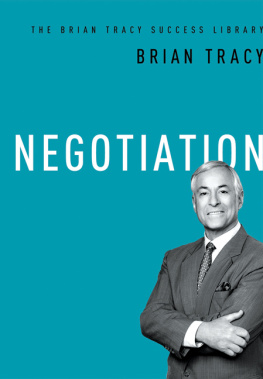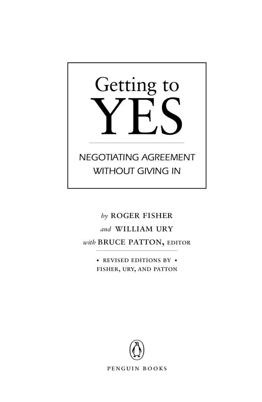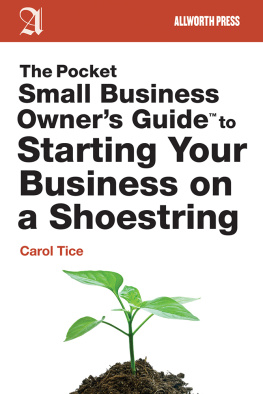
Copyright 2012 by Richard Weisgrau
All rights reserved. Copyright under Berne Copyright Convention, Universal Copyright Convention, and Pan American Copyright Convention. No part of this book may be reproduced, stored in a retrieval system, or transmitted in any form, or by any means, electronic, mechanical, photocopying, recording or otherwise, without the express written consent of the publisher, except in the case of brief excerpts in critical reviews or articles. All inquiries should be addressed to Allworth Press, 307 West 36th Street, 11th Floor, New York, NY 10018.
Allworth Press books may be purchased in bulk at special discounts for sales promotion, corporate gifts, fund-raising, or educational purposes. Special editions can also be created to specifications. For details, contact the Special Sales Department, Allworth Press, 307 West 36th Street, 11th Floor, New York, NY 10018 or .
15 14 13 12 11 5 4 3 2 1
Published by Allworth Press, an imprint of Skyhorse Publishing, Inc.
307 West 36th Street, 11th Floor, New York, NY 10018.
Allworth Press is a registered trademark of Skyhorse Publishing, Inc., a Delaware corporation.
www.allworth.com
Cover design by Brian Peterson
Library of Congress Cataloging-in-Publication Data is available on file.
ISBN: 978-1-58115-918-9
Printed in Canada
CONTENTS
Introduction
 t is time that we all realized that all of us were born not only with the ability to but also with the inclination to negotiate.
t is time that we all realized that all of us were born not only with the ability to but also with the inclination to negotiate.
Any parent of a young child of talking age has had the experience of negotiating with their child. The parent may not recognize it as a negotiation because the exchange is often so natural and seemingly insignificant. The perfect example is bedtime. By the end of a day, children often become more restless or noisy as they grow more tired. It is a signal to the parent that it is bedtime. The simple order time to go to bed is often met with resistance. Repeating the unwanted order seems to spark some reflex to negotiate. The child might reply with, Please let me stay up longer. Ill be good. The parent might respond with OK, ten more minutes, but you have to sit quietly. OK, I will, replies the child. A compromise has been reached, a deal made, and a negotiation finished.
You can probably cite dozens of examples of simple negotiations that have gone on in your life, such as working out how you will spend a day with your spouse or friend, or agreeing with a co-worker on how to divvy up a workload. All those kind of experiences fit within a broad definition of the word negotiate: to confer in order to reach an agreement. Conferring is nothing more or less than communication, something you do every day. All of us were born with the ability to communicate. Communication is not a process dependent upon originality or creativity. We are all born communicators. Some of us take the time and expend the effort to become better at it than othersthat is, we hone our skills so we might have an edge when needed. The ability to negotiate is innate. The skill of negotiation is developed. Like everyone else, you can develop those skills, if you choose to.
One of the reasons that some people tend to think of negotiation skills as a gift given to only some of us is because as youths we were often inadvertently conditioned to avoid negotiating. How often did we hear our meager attempts to negotiate that extra ten minutes of wake time simply rejected with a firmer order to go to bed, or maybe even a threat if we did not follow the order? How many times was an attempt to work out a problem with a teacher simply rejected with an authoritarian rebuff? In our youth, most of us were faced with countless situations in which acceptance was the only option, because the alternative was either punishment or some other kind of negative result that we did not want to experience. Think about how many times in your life your attempts to negotiate were simply rebuffed, when all you really wanted was to confer with a person in authority about something that was important to you. What was the long term effect of those rejections? Most likely, they conditioned you to believe that negotiation isnt usually an option when an authority figure is on the other side of the table. Couple that preconditioning with a general tendency to think of anyone who you are hoping to persuade as having authority, and you have all the conditions necessary to lead you into thinking that you cant negotiate. After all, your earliest experiences proved this to be true, and perhaps your current experience often seems like a repeat of an earlier situation. It is a recipe for believing that you have no alternative but to take what is offered. The recipe, if followed, is sure to serve up unpalatable meals that provide little satisfaction and insufficient nourishment. In other words, not knowing how to, or failing to negotiate almost guarantees that your interests will suffer.
Decades ago, when I first joined the ranks of small business owners, I knew nothing about negotiating. I was a victim of my own ignorance. I felt that I could not negotiate with clients or suppliers because it would be futile. I was paid what the client wanted to pay me. I didnt strive for greater fees because I was afraid to lose the job being offered to me. Over a period of a few years, I saw that my business was not going anywhere. My earnings were static. I was facing the unpalatable meal that I spoke of above. I had the good fortune to be one of those types who did something when corrective action was needed. I found a mentor or twosuccessful business ownerswho quickly convinced me that I was doomed to fail if I didnt learn to get what I needed from my clients, instead of what they were offering me.
I decided to change things. I read a dozen books on negotiating, and I applied what I read to my business. Gradually, over a few years, I learned how to make negotiating a routine in my business life. That knowledge proved to be invaluable throughout the years I operated my business and later when I served as executive director of a national trade association, and it is equally valuable now.
I have a simple goal for this book. I want it to help empower the small business owner to be more confident, more successful, and more profitable.
Chapter One
THE NATURE OF
NEGOTIATION
 eveloping your skill as a negotiator, like all skills development, requires that you understand the process. Unlike bookkeepinga mathematical processthe negotiating process is not arithmetic, so it cant be reduced to formulas. Software companies provide programs that are intended to guide a person through bookkeeping. You probably own one of those programs. Years ago one software company created a negotiating program. That program cant be bought now because it was (and still is) impossible to create an artificial intelligence that is sophisticated enough to formulate strategies, adjust them as things change, and understand that things are changing as you speak. Negotiations happen in real time and space, not cyber time and space. So far, the only computer that seems able to handle the negotiating process is the human brain.
eveloping your skill as a negotiator, like all skills development, requires that you understand the process. Unlike bookkeepinga mathematical processthe negotiating process is not arithmetic, so it cant be reduced to formulas. Software companies provide programs that are intended to guide a person through bookkeeping. You probably own one of those programs. Years ago one software company created a negotiating program. That program cant be bought now because it was (and still is) impossible to create an artificial intelligence that is sophisticated enough to formulate strategies, adjust them as things change, and understand that things are changing as you speak. Negotiations happen in real time and space, not cyber time and space. So far, the only computer that seems able to handle the negotiating process is the human brain.
Step one in preparing your most personal of computers, your brain, for the negotiating process is understanding the purpose for, and process of, negotiating.
DEFINING NEGOTIATION
In his book Power Negotiating (Addison-Wesley, 1980) John Ilich, a professional negotiator, said: In its purest form it [a negotiation] is mind pitted against mind. It is hard to argue against Ilichs statement. While negotiating is a process of conferring with another to settle a matter, that process is very dependent upon the mental processes of the parties trying to reach an agreement.
Next page













 t is time that we all realized that all of us were born not only with the ability to but also with the inclination to negotiate.
t is time that we all realized that all of us were born not only with the ability to but also with the inclination to negotiate. eveloping your skill as a negotiator, like all skills development, requires that you understand the process. Unlike bookkeepinga mathematical processthe negotiating process is not arithmetic, so it cant be reduced to formulas. Software companies provide programs that are intended to guide a person through bookkeeping. You probably own one of those programs. Years ago one software company created a negotiating program. That program cant be bought now because it was (and still is) impossible to create an artificial intelligence that is sophisticated enough to formulate strategies, adjust them as things change, and understand that things are changing as you speak. Negotiations happen in real time and space, not cyber time and space. So far, the only computer that seems able to handle the negotiating process is the human brain.
eveloping your skill as a negotiator, like all skills development, requires that you understand the process. Unlike bookkeepinga mathematical processthe negotiating process is not arithmetic, so it cant be reduced to formulas. Software companies provide programs that are intended to guide a person through bookkeeping. You probably own one of those programs. Years ago one software company created a negotiating program. That program cant be bought now because it was (and still is) impossible to create an artificial intelligence that is sophisticated enough to formulate strategies, adjust them as things change, and understand that things are changing as you speak. Negotiations happen in real time and space, not cyber time and space. So far, the only computer that seems able to handle the negotiating process is the human brain.